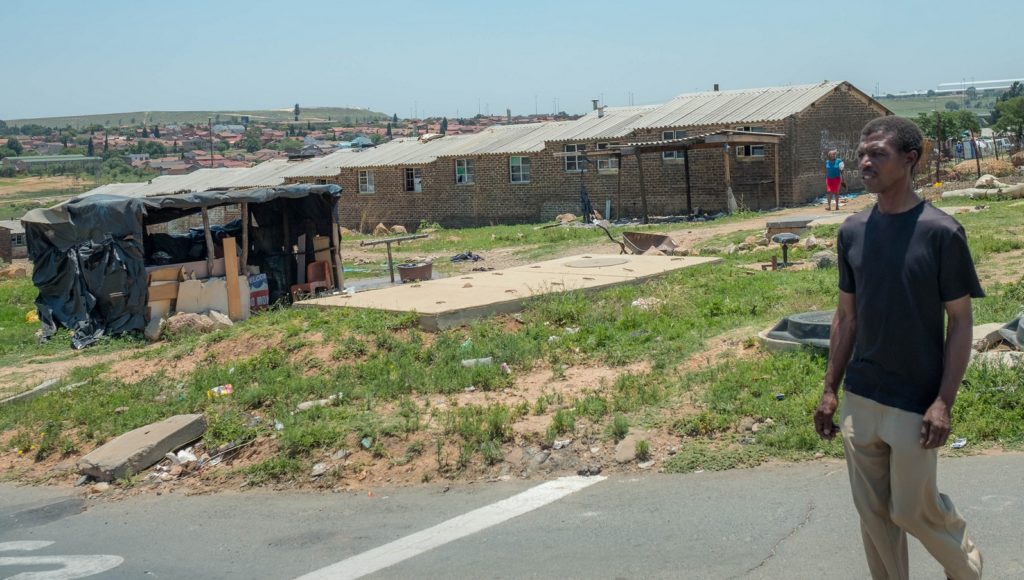TCL Electronics has officially launched its 2025 range of Mini LED TVs in South Africa, introducing cutting-edge display technology, massive screen sizes, and cinematic…
How South African startups are solving informal sector problems [Opinion]

A valid criticism of the country’s nascent startup scene is that the businesses that are being created are just thoroughly irrelevant to the actual needs of the country.
Entrepreneurs are often dazzled by the shiny things that come out of Silicon Valley, and want to emulate. In reality they are just appealing to a small middle class as opposed to 90% of the country’s population.
It’s a big opportunity, because the informal sector offers an ability to come up with unique and creative business models, as well work with a large, untapped potential market.
Not all startups have that Silicon Valley mentality. In fact, there are South African startups that are very much trying to solve South African problems, including bringing ecommerce and connectivity to townships, tackling fires in informal settlements, and finding ways to allow the unbanked to participate in the economy.
A number of SA startups are seeking to solve local problems, such as bringing connectivity to townships, serving the unbanked and tackling fires in informal townships
Here are a few startups that are making a big difference:
Pargo is a courier and logistics and courier company that claims to “solve the challenges of last-mile distribution”. It was founded by two Dutch nationals, Lars Veul and Derk Hoekert, who moved to Cape Town. The company’s mission is to create access to goods and services for everyone in Africa. It looks like they are well on their way to fulfilling that mission, already boasting more than 1500 pickup points, many of them in hard to reach rural areas or informal settlements with no fixed addresses (Earlier this month the startup in a statement announced that it had expanded its network of parcel pick-up points to Namibia, Botswana, Lesotho and Swaziland — Ed).
Quite a bit has been written about Lumkani, locally and internationally. It’s a Xhosa word meaning “be cautious” or “be aware”. It all started off as a university thesis, and then became a full-blown business. It’s a social enterprise startup which is solving the problem of shack fires in informal settlements via a tech-based early warning system. It’s not a smoke detector, because many in informal settlements cook on open flames. It rather measures the rate of temperature increase, then sets off an alarm, alerting other networked devices in neighbouring shacks that there may be a fire. Text messages are also sent to those affected in the community with GPS co-ordinates of where the fire started. Their next phase is to alert emergency services, in real-time. Since November 2014, Lumkani has distributed detectors to over 11 000 households. In 2018 it received funding from some major local VCs (see this story).
SweepSouth is a dynamic husband and wife team, headed up by Aisha Pandor who is CEO and co-founder – and the daughter of Education Minister Naledi Pandor. The company brings an Uber-type sharing economy model to the world of domestic workers. SweepSouth has significant traction with 80 000 customers and over 7000 registered domestic workers on its books. Many households can’t afford to pay more to domestic workers, and many can’t afford to employ domestic workers full-time at fair rates. According to Pandor, the sharing economy model alleviates this problem by sharing work among networks of people who pay fair rates per hour or day and cumulatively allow domestic workers to earn the equivalent of a decent month’s salary (Earlier this month the startup announced in a blog post that it had expanded to Mpumalanga – Ed) .
Franc – was started by Thomas Brennan, the former head of digital innovation at Discovery Health, aiming to make investments accessible to those other than the rich. It is a mobile app that allows members of Stokvels to invest in low-cost ETFs or moneymarket funds. Unlike most investment products in the country, Franc is bottom-basement cost, does not have any complicated or hidden costs, and is flexible when users want to withdraw their money. This country has one of the lowest savings rates in the world, and this startup tackles this head on.
Yethu is a startup that also works with Stokvels, but unlike Franc, is focused on only providing mobile management software to track payments, loans between members, pay out dates and a host of other features.
Also helping South Africans save is micro-savings mobile wallet Prospa, aimed at low income savers via a mobile savings app with no monthly fees and no required minimum account balance. It combines the power of group saving to maximise interest rates for micro-savers.
Tackling the issue of connectivity among the rural and townships is a Wifi-tech company called Ikeja. It allows residents to purchase mobile vouchers to access the internet. It already has a presence in townships like Nyanga, Gugulethu, Khayelitsha, Delft, Tembisa and Katlehong.
Codex is a Cape Town-based startup that is boosting coding literacy in the country. It offers a one-year coding programme in Cape Town that trains and places bright young talent as software developers. At codeX users learn practical skills the tech industry demands and then even helps its students find a job at local companies.
Also in the edtech space, Tutame specialises in connecting learners who need academic assistance with highly qualified tutors. Their core mission is to provide academic services to learners, by enabling access to highly qualified tutors to improve understanding of knowledge; as well as academic performance.
Solving the issue of the country’s high crime rates is an app called Namola. It allows users to make emergency calls without using your phone or using airtime. It claims that some 200 000 South Africans have downloaded it, with 10 000 emergency calls already made since it launched at the end of 2017. The app is apparently quite big in Soweto.
Another startup, Aura, provides a similar service to Namola. It aims to create efficiency within the South African Security industry in order to combat growing crime rates. It has a strategy to “aggregate the armed response industry nationally, into one dynamic response organism”.
Jonga is another startup playing in the security space. It is a low-cost, community based alarm system for townships and other low-income communities. Their solution involves a motion sensor module and mobile application that collectively detect and notify home-owners of intrusions in their household. It prompts a user to panic which connects you to a community that can assist you.
Quickloc8 is aimed at the local taxi industry, and allows taxi owners to manage their taxis better with their smartphone technology. It provides real-time tracking, GPS location, notifications when a driver’s shift starts and ends, provides information on how many trips taxis made between ranks. It will also report speeding and accidents.
Livestockwealth is a crowdfarming platform that connects investors looking to invest in cows with farmers looking for investment to grow their farms. It works like a bank fixed deposit where you invest in a cow for a six or 12 months period with an option to re-invest. The company claims there are already more than 700 smart investors that own over R36-million worth of cows on their farms.
More from Matthew Buckland
From vision to keeping positive- 8 habits of successful entrepreneurs [Opinion]
My hot and happening SA startup picks for 2019 [Opinion]
Being an A-grade student at school no sure sign of business success [Opinion]
Section 12J VC incentive a good start, but government can do more [Opinion]
How corporates are jumping to work with tech startups [Opinion]
Your pitch deck is your business story, but don’t let it baffle investors [Opinion]
How Naspers could help find SA’s next great tech startups [Opinion]
Pick a sector, add internet and your firm could be worth millions [Opinion]
Time for startups to get over myth of the ‘one big idea’ and just get going [Opinion]
What really is the secret to getting a VC deal? [Opinion]
SA’s startup ecosystem offers a positive vision of country’s future [Opinion]
Indonesian unicorn shows Silicon Valley model can’t beat going local [Opinion]
What’s the secret ingredient that makes entrepreneurs successful? [Opinion]
Disclosure: Matthew Buckland is on the advisory board of SweepSouth.Matthew Buckland is an investor, entrepreneur, founder of Ventureburn.com. This column was first published in Business Day (under the title “Start-ups make a marked difference in informal sector”. See the original version here.
Featured image: Martyn Smith (Supplied)


